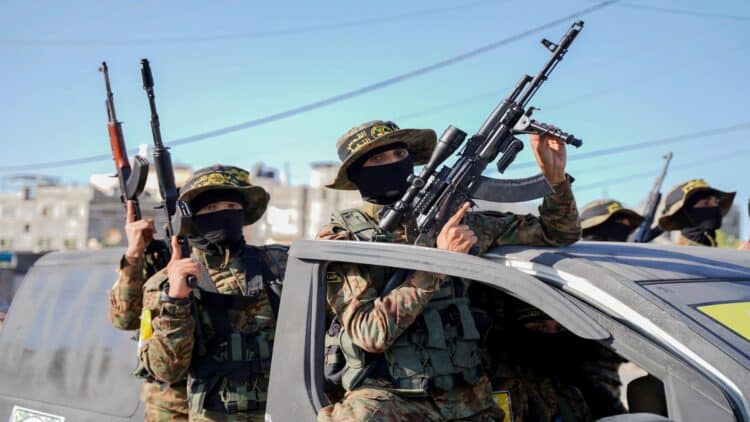On September 1, 2025, ahead of the European Union (EU) summit, Denmark’s Prime Minister, Mette Frederiksen, warned that there was a dangerous situation in Europe, one that has not been witnessed since the second world war. The EU summit was held on October 1, 2025, where member states discussed the escalation of Russia’s hybrid warfare aimed at European countries.
Denmark states that Russia’s escalating hybrid warfare calls for urgent attention
Europe is being warned of a “Pearl Habour moment,” using the expression to bring awareness to any possible shocking and sudden events. This warning is specifically related to the escalating hybrid warfare tactics actioned by Russia. Some of these tactics include:
- The use of drones
- Airspace violations
- Sabotage
- Cyberattacks
- Arson attacks
- Election interference
- Propaganda campaigns
- Psychological pressue
- ‘Shadow war’ tactics: attacks on infrastructure or espionage
Russia has designed multifaceted hybrid warfare strategies with the combination of military, political, economic, technological, and psychological tools. These tactics, although escalating, have not yet prompted a full-on war within the regions. That said, the risk of war is high, and leaders have warned that Europe may already be involved in a silent and undeclared war with Moscow. Europe must remain alert due to the risk of multi-region destabilization as Russia’s actions continue.
Unsanctioned airspace incursions trigger NATO response
Russia has continued to send drones and other airborne weapons into the airspace of multiple countries in Europe. The following events are noted with importance:
- On September 19, 2025, Estonia’s airspace was breached by MiG-31 fighter jets. This prompted North Atlantic Treaty Organization (NATO) interception.
- Drone swarms were targeted at Poland, forcing NATO to enact Article 4 and calling for urgent discussions between NATO members regarding Russia’s escalating hybrid tactics.
- Two unidentified hot air balloons entered Lithuania’s airspace, resulting in the brief closure of its main airport.
These events have brought Europe’s vulnerabilities to light, particularly against aerial threats. Article 4 states that the members of NATO can bring security concerns or other issues to the group for important discussions. The activation of NATO’s Article 4 can also simply be a request for support from the group.
The article states: “The Parties will consult together whenever, in the opinion of any of them, the territorial integrity, political independence, or security of any of the Parties threatened.” The events in Europe demonstrate the urgent need for coordination between NATO, EU, and the wider Europe region. Conversations between alliance members under Article 4 will discuss threats and territorial integrity.
The future of Europe: leaders are divided
According to Vytautas Landsbergis, a former member of the European Parliament, NATO has failed to act early, allowing Russia’s warfare to continue across Europe. Landsbergis also urged NATO to enforce bureaucratic procedures, warning that without these measures, Russia will continue to escalate its hybrid strategy. Despite NATO’s slow reaction, discussions have been held to address possible deterrence methods, such as arming Ukraine with missiles if there are further airspace breaches.
Denmark’s warning about the possibility of the escalation of Russia’s hybrid warfare has now been directed at European nations, specifically those sitting along the eastern bank of Europe, as well as Baltic and Nordic nations that face direct exposure to Russia’s hybrid tactics. Denmark’s Prime Minister, Mette Frederiksen, has highlighted the urgent need for a coordinated defense, information sharing, and stronger protection of European countries’ airspace.
Leaders stress that without proactive measures, Europe is at risk for further potential conflict. Denmark’s Prime Minister, Frederiksen, has emphasized the desperate need for collective action between European countries, the EU, and NATO. Russia will continue its efforts in escalation if this group does not take action soon. Denmark’s warning underscores the speed at which regional affairs evolve into a continental crisis. The coming months will determine whether Denmark’s warning is accurate.


